Business in Kenya, Mombasa, Nairobi, Port

Kenya: The largest East African Economy, frontier market. Foreign Trade
- Introduction to the Republic of Kenya (East Africa)
- Kenyan historians;
- Economy of Kenya
- Kenyan International Trade
- Investment in Kenya
- Business Opportunities in Kenya:
- Agro-Processing
- Horticulture
- Manufacturing
- Knowledge Industry
- Infrastructure
- Case Study: Kenyan Businessman
- Case Study: Kenyan companies;
- General Motors East Africa
- REA Vipingo
- East African Breweries
- Access to the Kenyan Market
- Business Plan for Kenya
The purposes of the subject “Foreign Trade and Business in Kenya” are the following:
- To analyze the Kenyan Economy and Global Trade
- To know the trade opportunities in Kenya
- To explore the Kenyan trade relations with the country of the student
- To know the Kenyan Trade Agreements
- To examine the profile of Kenyan businesspeople and enterprises
- To develop a business plan for the Kenyan Market

The Subject “Foreign Trade and Business in Kenya” belongs to the following Online Programs taught by EENI Global Business School:
Doctorate in African Business, World Trade.
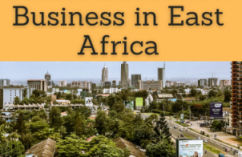
Master in Business in Africa, International Business, Foreign Trade.

Languages:  or
or  Kenya
Kenya  Quenia
Quenia  Kenia.
Kenia.
- Credits of the subject “Doing Business in Kenya”: 3

- Duration: three weeks
EENI in swahili: Shule ya biashara.

Masters adapted to  Kenyan Students.
Kenyan Students.
Global Trade and Business in Kenya:
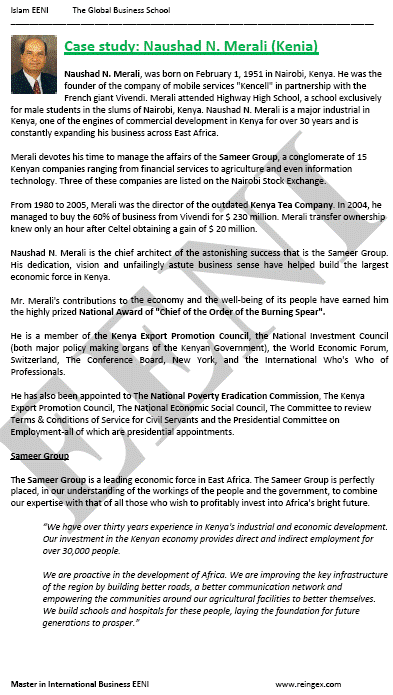
Kenya: an African frontier market, one of the African economic engines, and the largest East African Economy.

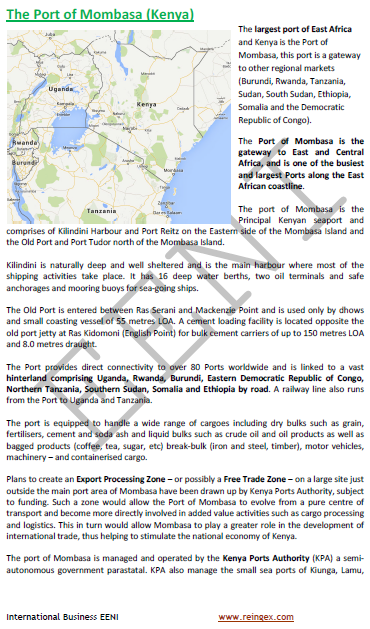


Kenyan Preferential Access and Trade Agreements:
- Kenya and the East African Economic Area
- Common Market for Eastern and Southern Africa (COMESA)
- COMESA-EAC-SADC Agreement
- Intergovernmental Authority on Development (IGAD)
- East African Community (EAC)
- African Continental Free-Trade Area
- Indian-Ocean Rim Association
- Africa-EU Partnership
- Kenya-U.S.
- Nile Basin Initiative
- Conference on the Great Lakes
- Arab Bank for Africa (BADEA)
- Community of Sahel-Saharan States (CEN-SAD)
- UK-Kenya Agreement

- WTO
- GATS
- Agreement on Sanitary Measures
- Agreement on Technical Barriers to Trade
- Agreement on Preshipment Inspection
- Agreement on Safeguards
- Trade Facilitation Agreement
- WCO
- BIC
- Chicago Convention (ICAO)
- International Maritime Organization
- Istanbul Convention - not a member
- Hamburg Rules
- Single African Air Transport Market (SAATM / IATA)
- Customs Convention on Containers - not a member

- Economic Commission for Africa
- African Union
- Africa Agriculture Development Programme
- AU Convention on Combating Corruption
- AUDA-NEPAD
- African Development Bank
- Africa-Asia Partnership
- Africa-Turkey Partnership
- Africa-Korea Partnership
- Africa-Japan Cooperation
- Africa-South America Summit
- China-Africa Cooperation
- Africa-India Cooperation
- Africa-BRICS
- Afro-Arab Cooperation
- Arab Bank for Africa (BADEA)

- WB
- WTO
- IMF
- UN
- UNCTAD
- ITC
- WIPO
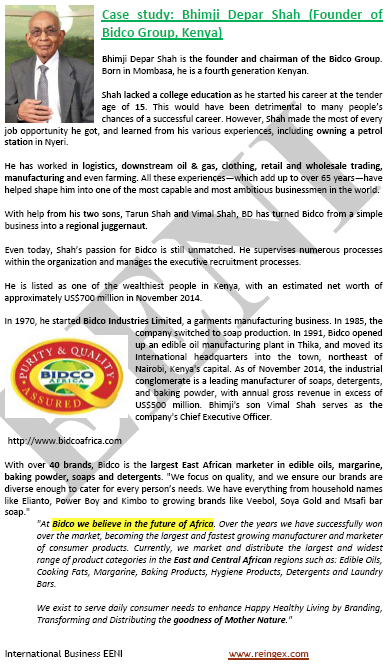
The Republic of Kenya
- Borders of Kenya: Ethiopia, Somalia, Tanzania, Uganda and South Sudan
- Kenyan Population: 44 million people
- Kenyan Area: 582,650 km²
- Capital of Kenya: Nairobi (4 million)
- The largest Kenyan cities: Nairobi, Mombasa, Kisumu, Nakuru, Eldoret
- Official Languages of Kenya: English and Swahili
- Currency: Kenyan shilling (KES)
- Government Type: Presidential Republic
- Kenya became independent from the UK (December 1963)
- Abolition of Slavery in Kenya: 1907
More information about Kenya (EENI African Business Portal).
Religions in Kenya:
- African Traditional Religions
- Christians (83%)
- Protestant (48%)
- Catholic (23%)
- Islam (11%, 4 million people)
- Fiqh (Islamic Jurisprudence): Shafi
- Hinduism: 1% of the population

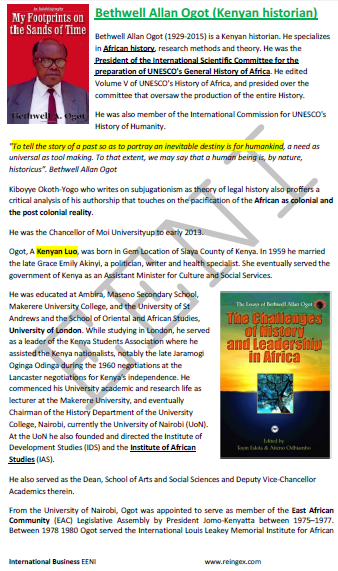
Kenya belongs to the East African Economic Area.
Kenyan Economy
- Kenya is one of the leading economies in East Africa
- Kenya is an African frontier market
- The strategic location of Kenya and its well-developed business infrastructure make it a natural choice for the foreign investors and international companies
- The largest source of revenue is tourism
- The main Kenyan crops are tea and coffee (30% of the GDP)
- The Port of Mombasa is the largest in the region
- Kenya is the financial and logistics hub of East Africa
- Kenyan GDP growth: 4.9% (2013), 5.7% (2014)
- Under the Economic Recovery Strategy for Wealth and Employment Creation, various reforms have been affected, and these have had a total positive effect on the economy of Kenya
- The vision 2030 of the Kenyan Government provides the entire Policy Framework that should lead Kenya to attain the status of a newly industrialized nation by the year 2030
- Kenyan agricultural sector contributes 24% of the GDP and 19% of the formal wage employment
- 60% of all households are occupied in farming activities, and 84% of rural households keep livestock
- Kenyan manufacturing industry hit 4.1%, construction industry, 3.5%, wholesale and retail trade, repairs, 9.5%, tourism and hotels, 15.1% and Transport and communication at 9.7%
- Kenyan manufacturing sector contributes 10% of the GDP and accounts for 14% of the wage employment, mainly in food and wood processing, beverages, textiles and garments, furniture, and fabricated metal
General Motors East Africa is placed in Nairobi (Kenya) and serves the East African region covering Burundi, Ethiopia, Malawi, Mozambique, Rwanda, Somalia, Tanzania, Uganda, Zambia, and Zimbabwe.
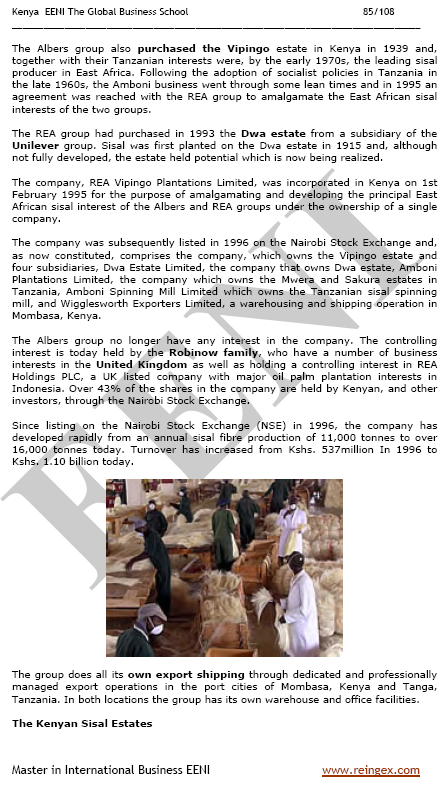
The largest Sisal fiber manufacturer in Africa, the REA Vipingo Group is a well established agricultural business, headquartered in Nairobi, Kenya. The company is listed on the Nairobi Stock Exchange and owns and operates a flourishing sisal business, whose activities include:
- Cultivation
- Manufacture
- Spinning and
- Sisal fiber and sisal products exports

International Trade of Kenya.
- Kenya exports textiles and garments to the U.S. under the African Growth and Opportunity Act (preferential international trade arrangement)
- Most of the Kenyan exports go to the regional markets of the COMESA, particularly to Uganda, Tanzania, and Rwanda
- Top Kenyan export market destinations: the EU, Eastern Europe, the Middle East, America, Far East, Australia, and Southeast Asia
- The African region is the largest export market destination followed by Europe
Kenyan Institutions and Agreements:
Kenya is a member of the UN and the WTO and has multiple regional trade agreements. As a result, Kenya has undertaken substantial trade liberalization initiatives within the WTO framework, including the Most-favoured-nation tariff reduction, quantitative restrictions removal, business environment optimization and Trade Facilitation at the regional level.
Kenya is signatory to the Cotonou Partnership Agreement in 2000, which provided for non-reciprocal trade between the EU and the Africa Caribbean and the Pacific countries.
Furthermore, Kenya is a member of the Common Market for Eastern and Southern Africa, the East Africa Community and the Intergovernmental Authority on Development.
Kenya is a beneficiary of trade preferential schemes, including the Generalized System of Preferences with some industrialized countries, trade and Investment Framework Agreement and the AGOA with the U.S..
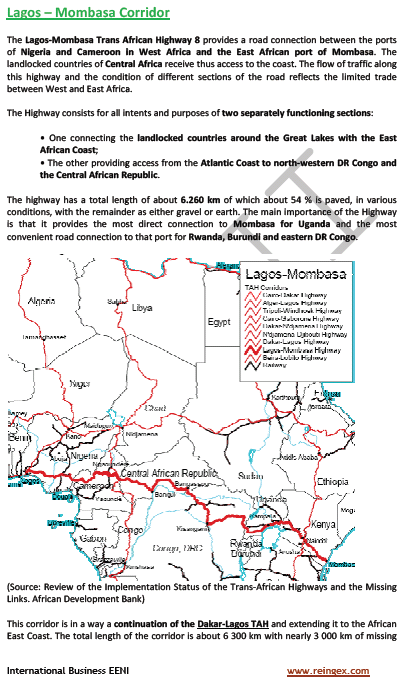
(c) EENI Global Business School (1995-2024)
We do not use cookies
Top of this page


